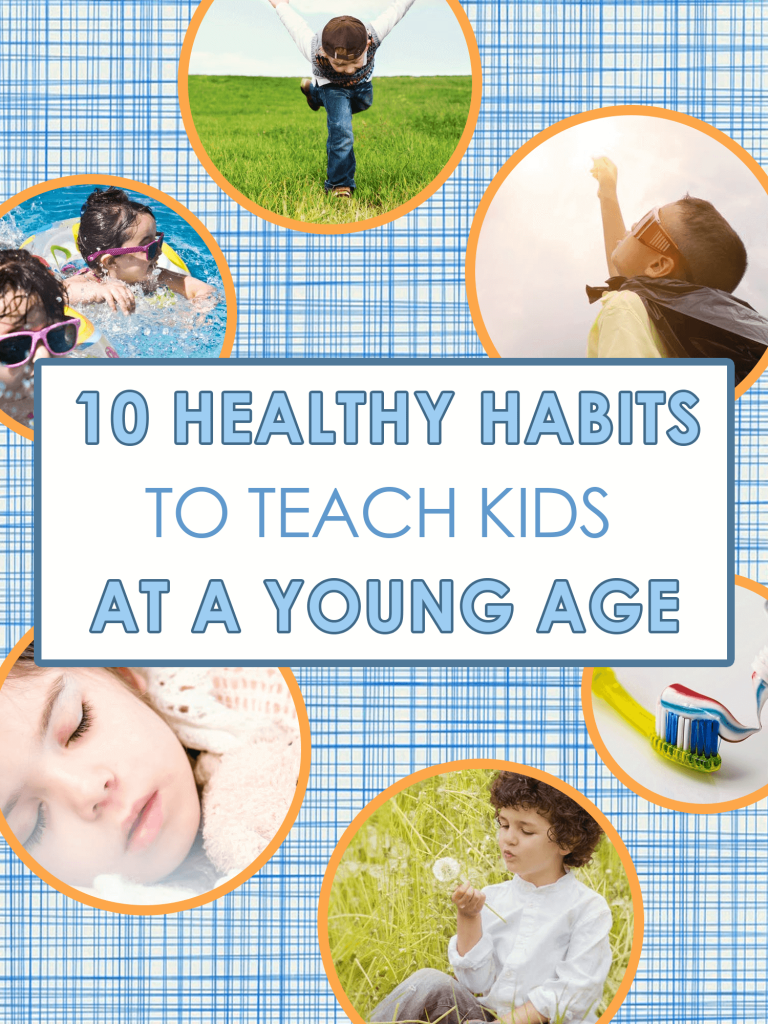10 Healthy Habits to Teach Kids at a Young Age
It’s easier to learn new skills and develop habits, good or bad, at a younger age. You’ve heard that children are like sponges, thirsty for knowledge and guidance, and that’s true. Both healthy and unhealthy habits can be cemented at a young age, so it’s critical to guide children towards healthy habits for life. Many people are surprised by just how easily and quickly even young children can learn self-care for holistic health. Here are a few healthy habits to start instilling today.
1. Thinking of exercise as something fun to be indulged in daily.
“Exercise” is a word that often has negative meanings, and kids can pick up on this. Instead, call it play or sports. Help your child find a means of playing or a sport that they enjoy. This can include running together, skipping, team or solo sports, swimming and much more. Modelling healthy behaviour is critical, so this means you’ll have to adopt healthy habits and if you don’t think it’s fun, fake it until it is!
2. Drink water first.
Having any food “off limits” can lead to food issues. However, many people are chronically dehydrated and addicted to sugar and artificial sweeteners. Always offer water first, and encourage children to drink a glass of water before meals (hunger can often be confused for thirst). Water purifiers can help if kids think water “tastes funny.”
3. Talk about the dangers of smoking.
It’s not enough to say “don’t smoke” or “smoking is dangerous.” Talk about the effects, look at photos, and go beyond lung cancer to address smell, yellow teeth, and other side effects. The idea of lung cancer is often beyond a child’s comprehension.
4. Practice body positivity.
Current research suggests eating disorders have a genetic component. Practice positive self-talk about your own body as well as your child’s in terms of what your body can do—not how it looks. For example, saying, “Aren’t we lucky to have strong legs so we can enjoy bike rides?”
5. Talk openly about the dangers of alcohol abuse.
It’s usually not reasonable to suggest or assume a child will grow up to be a teetotaler. Instead of putting alcohol in the “off limits” category, talk about what responsible drinking entails. If you drink in front of your child, practice self-control and avoid excessive drinking. Understand the impact of alcohol abuse, such as putting yourself in dangerous situations, can help children develop a healthy relationship with social drinking.
6. Practice oral hygiene together.
Flossing, proper brushing for at least two minutes, and seeing the dentist at least once per year are foundation for oral health. Oral health is also linked to overall well-being. A kitchen timer for brushing and flossing together (before brushing, not after!) can help develop these habits.
7. Make sure your child gets enough protein.
Protein is essential for building and sustaining muscles as well as for energy. Humans need the same amount of protein per day in grams as they weigh. For example, a sixty-pound child would benefit from 60 grams of healthy protein.
8. Establish sleep hygiene best practices.
Sleep hygiene is any practice that helps a person get enough quality sleep for their needs. This can include establishing bed time routines, avoiding screens at least two hours before bed, avoiding caffeine, ensuring the bedroom is cool and dark, and removing electronics from sleep areas.
8. Practice positive self-talk.
Our society embraces sarcasm and self-deprecation. However, self-talk is one of the most powerful tools for building self-esteem. How you talk to yourself matters. Encourage your child to be their best cheerleader.
10. Go back to nature.
No matter where you live, you can seek out natural green areas to enjoy. Fresh air, surrounding yourself by greenery, and avoiding technology on these outing can help with mental and spiritual well-being. It’s grounding and will encourage fitness, too. Seek out parks, trails, and arboretums near you.
Conclusion.
Keep in mind that your children will learn best by practising with you and watching you. You’re their model for what to think, say, and how to behave. It’s a big responsibility, but it will also help keep you healthy. Most adults have at least a few bad habits left over from their own childhood. This is your chance to correct them and help your child develop a healthier lifestyle moving forward. If you struggle with these items, that’s perfectly normal. Perhaps seeking out a mental health therapist can help you address your own struggles and be a better model for your child. Prioritizing mental health, and sharing this with your child, is yet another way to model self-care. De-stigmatizing mental health is an ongoing battle. How do you teach your kids healthy habits? let us know your thoughts in the comments below.





Comments loading...